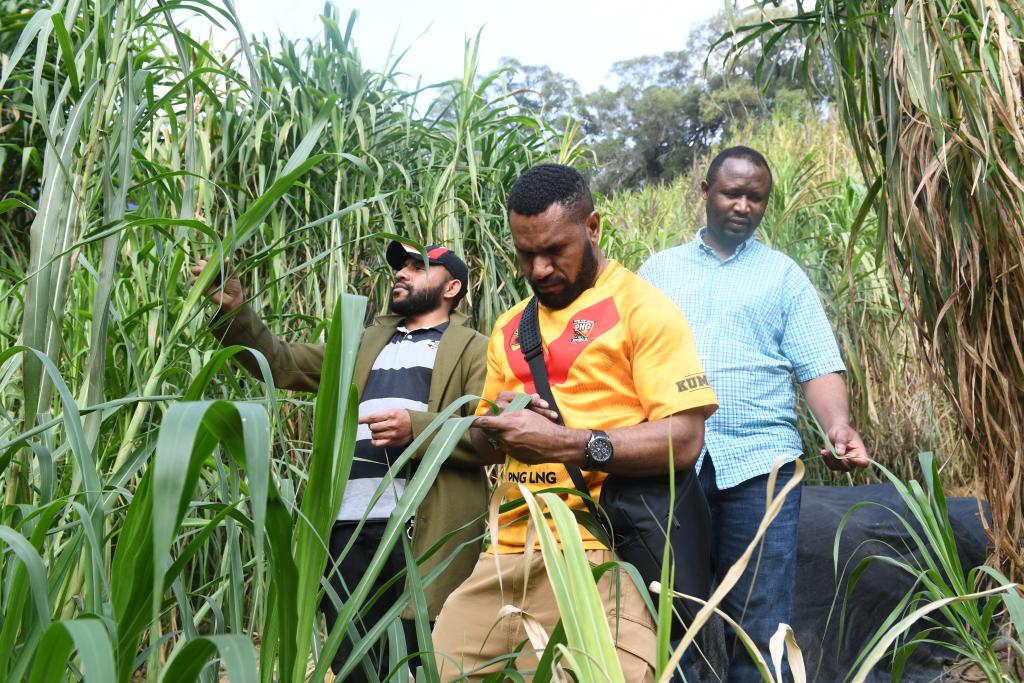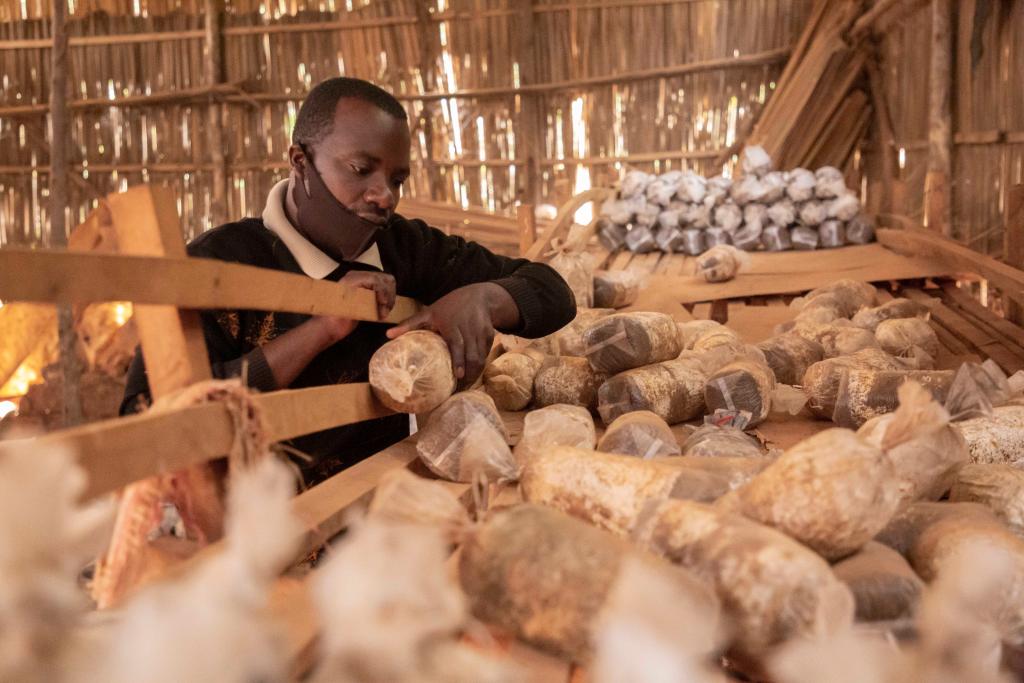Kigali, August 2 (Xinhua) — Title: Small mushroom plants benefit the world
The African Regional Seminar and Training Course on the Application of Fungi and Grass Technology recently opened in Huye City, Southern Province, Rwanda. The seminar focuses on the theme of “Application of Mushroom and Grass Technology: Mushroom Production, Livestock Feed, and Environmental Protection”, and explores in depth the current status and future prospects of mushroom and grass technology in Africa. In 2001, the mushroom grass technology from China was first launched as an official aid project abroad and landed in Papua New Guinea. For over 20 years, mushroom grass technology has taken root in more than 100 countries, unleashing enormous potential in areas such as poverty alleviation, employment, desertification control, animal husbandry, and power generation, becoming a “happy grass” that benefits the world.
The mushroom grass technique of “replacing wood with grass” fundamentally solves the “mushroom forest contradiction” that requires a large number of trees to be cut down for edible mushroom cultivation. Mushroom grass has a large plant type, high yield, and strong adaptability. In addition to being used as a mushroom culture medium, it can also be widely planted to prevent soil erosion, or used as feed, organic fertilizer, etc. Professor Lin Zhanxi, the inventor of mushroom grass technology, said that using Chinese mushroom grass technology to develop mushroom grass characteristic industries has the advantages of participation and development for thousands of households, as well as low investment, fast results, high economic benefits, good ecological benefits, and wide adaptability. These characteristics make mushroom grass technology demonstrate strong vitality and considerable economic value in resource scarce and environmentally fragile areas. On the African continent, many countries are facing serious food security issues, with land scarcity and environmental degradation further exacerbating the challenges. The introduction of mushroom grass technology brings new hope to local farmers. By planting mushroom grass, farmers can not only obtain high-quality livestock feed, but also use mushroom grass to cultivate edible fungi, creating a source of income.
 On March 28, 2024, at Fujian Agriculture and Forestry University in Fuzhou, students from Rwanda and Papua New Guinea inspected the growth of mushroom plants in the “International Mushroom Garden”. Photo by Lin Shanchuan, Xinhua News Agency reporter
On March 28, 2024, at Fujian Agriculture and Forestry University in Fuzhou, students from Rwanda and Papua New Guinea inspected the growth of mushroom plants in the “International Mushroom Garden”. Photo by Lin Shanchuan, Xinhua News Agency reporter
In Rwanda, since the introduction of mushroom technology, the local mushroom industry has developed rapidly, providing the market with abundant edible mushroom products and creating a large number of employment opportunities, effectively promoting local economic development. In 2013, Rwandan youth Leonidas Mushimiimana went to China to study mushroom and grass techniques. After returning from school, he founded an edible mushroom cultivation workshop in Kigali, the capital of Rwanda. Currently, there are 10 full-time employees and dozens of temporary workers need to be recruited during peak seasons. The workshop can produce up to 30000 mushroom bags per month and harvest 600 kilograms of fresh mushrooms per week. The products are not only supplied to the domestic market, but also exported to countries such as Uganda and the Democratic Republic of Congo. The China Aid to Rwanda Agricultural Technology Demonstration Center has so far supported more than 50 Rwandan enterprises and cooperatives that produce edible mushroom bags, with over 4000 local farmers engaged in edible mushroom cultivation, and the entire industry chain driving employment for more than 30000 people. Rwandan agricultural officials have stated that mushroom grass technology has helped many Rwandan people overcome poverty and alleviate the malnutrition problems faced by many families.
 At a mushroom cultivation workshop in Kigali, the capital of Rwanda, owner Emmanuel Ashimana inspects mushroom bags (September 9, 2020). In 2006, mushroom and grass experts from Fujian Agriculture and Forestry University in China came to Rwanda to start a mushroom and grass technology cooperation project, demonstrating and promoting mushroom and grass technology locally. Xinhua News Agency (Photo by Cyril Ndeya)
At a mushroom cultivation workshop in Kigali, the capital of Rwanda, owner Emmanuel Ashimana inspects mushroom bags (September 9, 2020). In 2006, mushroom and grass experts from Fujian Agriculture and Forestry University in China came to Rwanda to start a mushroom and grass technology cooperation project, demonstrating and promoting mushroom and grass technology locally. Xinhua News Agency (Photo by Cyril Ndeya)
A ‘happy grass’, a’ happy road ‘for thousands of households. Similar successful cases are also common in countries such as Fiji, Papua New Guinea, and the Central African Republic. After adopting mushroom grass technology, these countries not only improved agricultural production capacity, but also improved the local ecological environment. China is making every effort to “pass on and guide” by offering training courses, holding seminars and forums, and conducting production demonstrations, helping more countries use mushroom and grass technology to eliminate poverty, maintain food security, and assist more and more people in living a better life. Former Cabinet Minister of Papua New Guinea named his daughter “Mushroom Grass”. The people of Lesotho create folk songs that praise mushroom grass. Amusun Sibanda, Director of the National Strategy and Capacity Building Branch of the United Nations Department of Economic and Social Affairs, stated that mushroom grass technology can help achieve multiple sustainable development goals, such as poverty eradication, and has become a priority project of the China United Nations Peace and Development Fund. Papua New Guinea Prime Minister Malape recently stated that the Chinese mushroom grass rice project plays an important role in Papua New Guinea’s agriculture and poverty reduction efforts, and the Papua New Guinea government will continue to actively support the development of the mushroom grass rice project.
